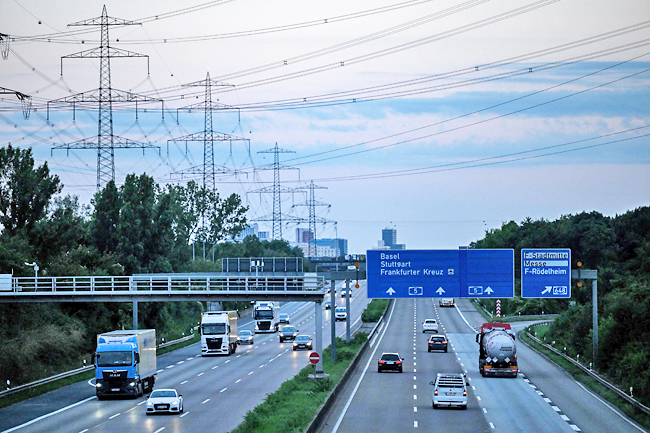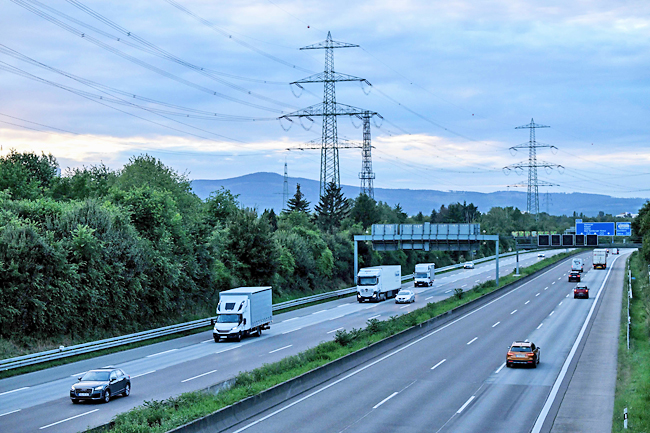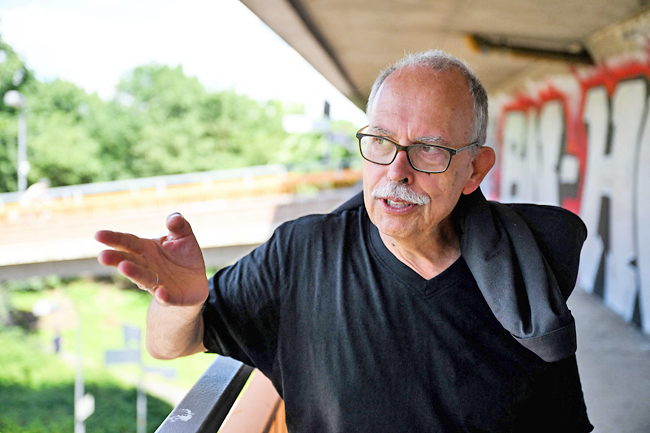FRANKFURT (AFP) – A proposal to create Germany’s biggest motorway has sparked a backlash, with critics fearful the “monstrosity” will increase climate-damaging emissions, worsen noise pollution and harm biodiverse habitats.
The recommendation suggests widening a section of the A5 outside the western city of Frankfurt to 10 lanes at an estimated cost of EUR1.1 billion (USD1.2 billion).
While supporters say it is necessary to cope with expected increases in traffic on what is already one of Germany’s busiest stretches of motorway, it has touched a nerve amid mounting concerns about the climate crisis.
Hans Christoph Stoodt, from a campaign group fighting the plans, described the idea as “completely crazy”, adding it would create a “monstrosity”.
“The German government has committed to making Germany climate-neutral by 2045… and the same government is planning a 10-lane motorway here,” he told AFP.
“We need to expand public transport and drastically reduce private, motorised transport driven by fossil fuels.”
The proposal was laid out in a feasibility study commissioned by state-owned Autobahn GmbH, which manages the country’s motorways, and that was only released publicly in recent weeks under pressure from campaigners.



Authorities have since been at pains to stress they are still deciding what to do. The transport ministry in Berlin said the study does not represent a final decision and will only form part of its considerations.
The affected stretch, running about 30 kilometres from a junction near the city’s airport to the town of Friedberg to the north, is currently either six or eight lanes.
The study argues the extension is needed to cope with looming increases in traffic volumes.
Already jammed at busy times, the A5 is set to get even more crowded, with some 200,000 cars expected on the road daily by 2030, according to the study.
But as well as a potential rise in emissions, Stoodt listed a litany of other problems that would be caused by widening the highway.
Houses close to the motorway would have to be demolished to make way for extra lanes, said the 69-year-old, who lives in the Griesheim area of Frankfurt close to the motorway.
Despite high barriers lining the side of the highway aimed at reducing noise, the constant rumbling of traffic is already above permitted levels and would only worsen with an extension, said Stoodt, whose group is called “It is too loud”.
Stoodt is also worried about the impact on nature in the local area, as the proposed expansion runs through an area that provides drinking water and hosts a bird sanctuary.
The study however says that there are no “insurmountable environmental obstacles” to widening the motorway.
In its conclusions, it finds that widening the section of the motorway to 10 lanes is the only option examined that would “achieve sufficient capacity” to cope with expected increases in traffic.
A transport plan produced by the federal government also envisages expanding sections of the A5, although what the study suggests goes further. There have been mixed messages from authorities. Frankfurt city officials have spoken out strongly against the 10-lane widening.
The government of the state of Hesse – where Frankfurt is located – has said it is not opposed to the idea, although only if the road was covered with some kind of enclosure to reduce noise.
However the final decision rests with the transport ministry in Berlin, which is led by the motorway-friendly FDP party.
A ministry spokeswoman said that, as well as traffic flow, factors including impacts on nature, air pollution and noise will be taken into account. But the expansion has not been ruled out.
An “overall concept” will now be drawn up related to any potential widening, taking into account the feasibility study as well as other factors like updated traffic studies, it said.


